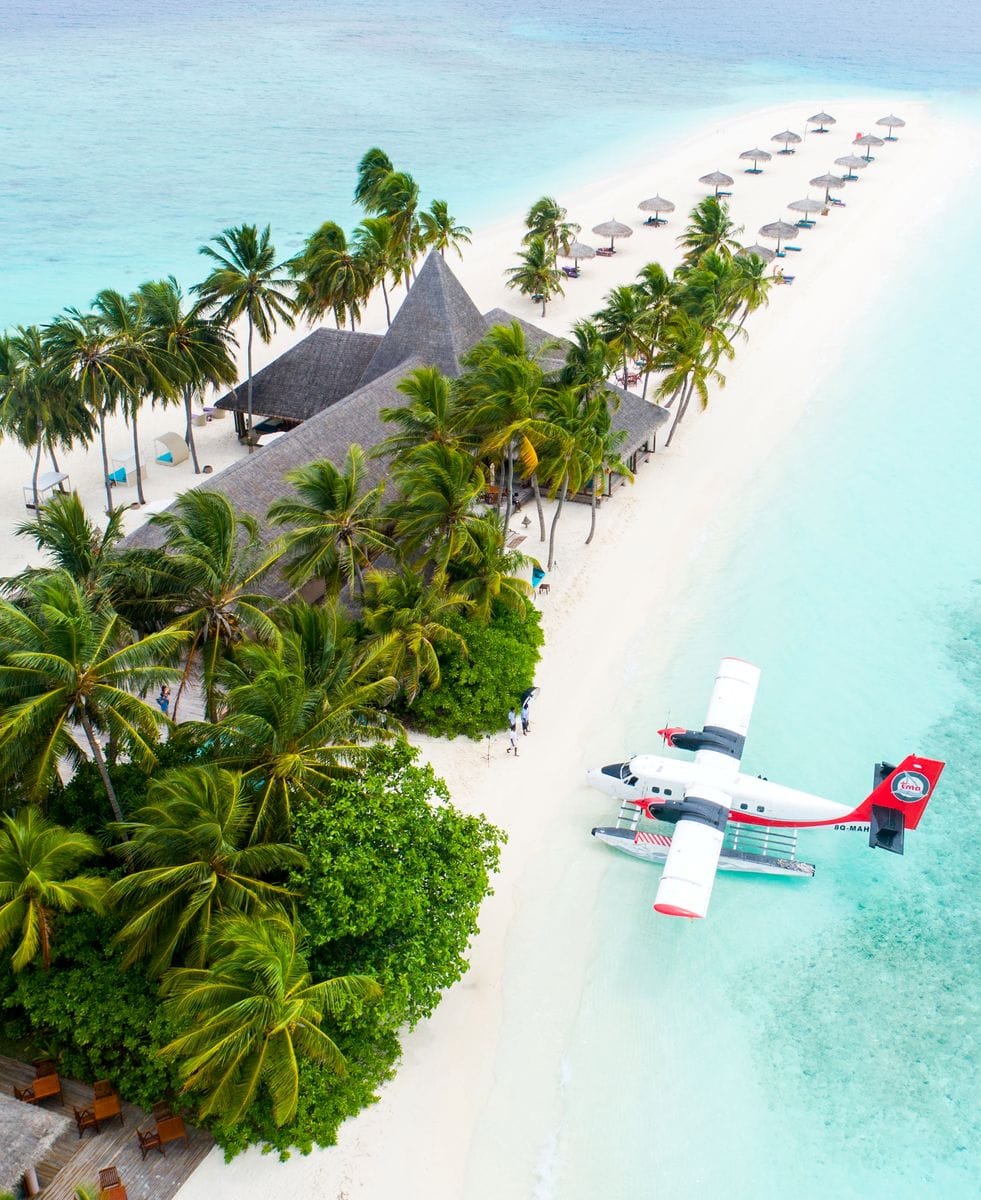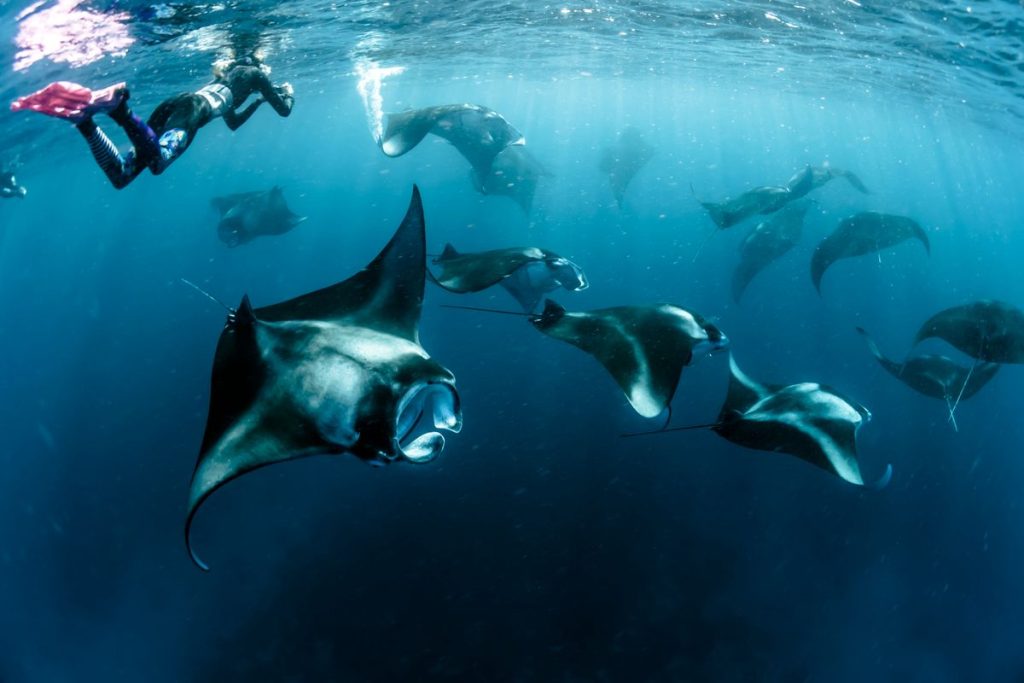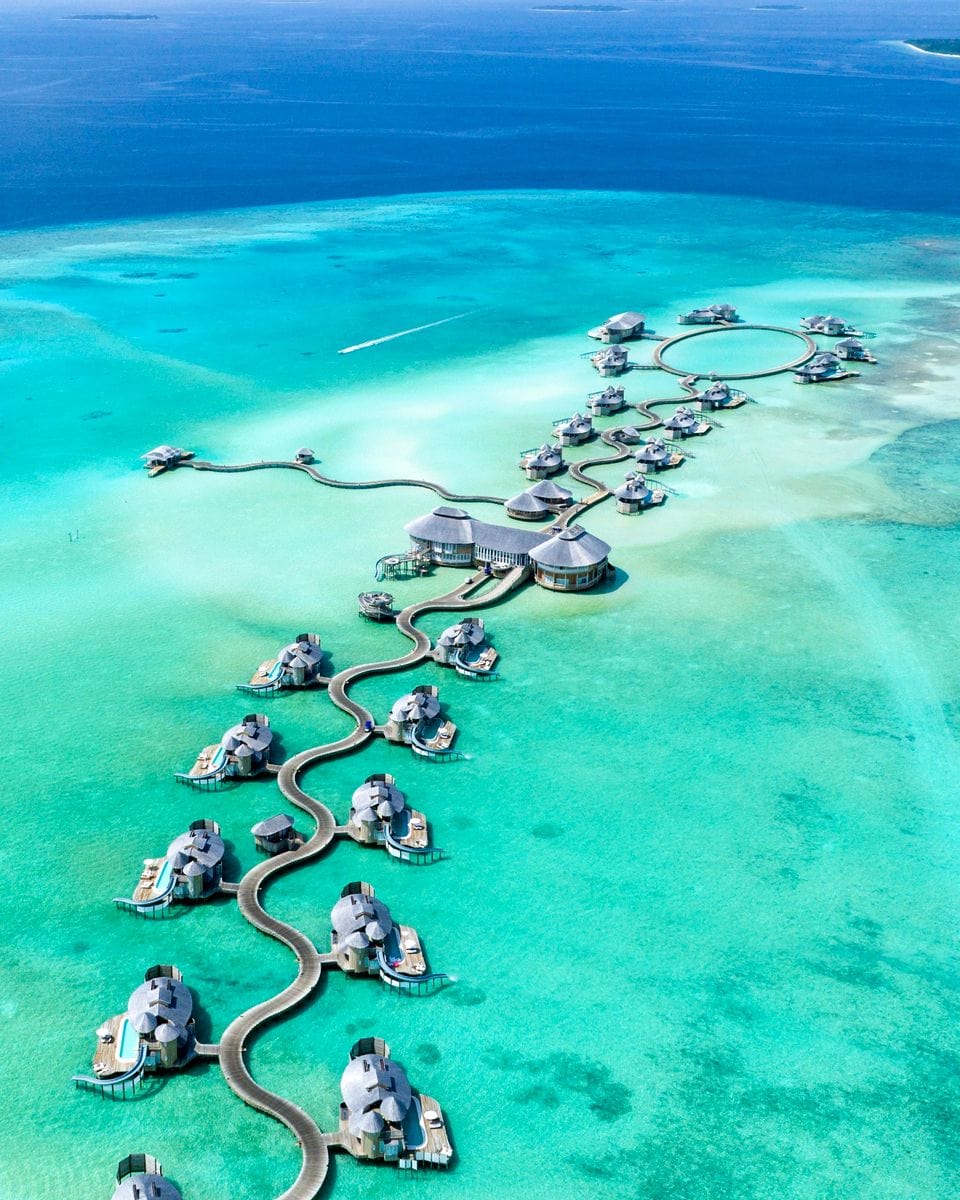The Maldives is a stunning travel destination nestled in the Indian Ocean, renowned for its breathtaking marine life, pristine beaches, and luxurious private island resorts.

A question often found on the Quora or TripAdvisor is, “Why is Maldives so expensive?” One of the primary reasons is the remote location of the islands, which not only adds to their exotic appeal but also significantly drives up the cost of logistics and supplies. Moreover, the uniqueness of staying in overwater bungalows or private villas that offer direct access to the sea or reef is an experience that’s not easily replicated in other destinations, making it expensive compared to a standard hotel in a major city.
Add to this the high cost of seaplane transfers, necessary to reach many of the resorts from the airport, and it’s easy to see why the cost of a trip to the Maldives can quickly escalate.
Unlike traditional taxi or shuttle services, these seaplanes offer a unique way to travel but come with a pricey tag. These factors, along with the luxurious and expensive amenities offered by many resorts, such as personal butlers and private pools, significantly contribute to the overall cost of a stay in the Maldives.
While some may question, “Is it worth it?”, the consensus on Maldives forum discussions often leans towards “Yes, it’s worth every penny” for a lifetime trip or honeymoon type islands experience.
Despite the high expenses, options are available for varying budgets, and with some planning, more affordable travel experiences can still be found amidst the archipelago’s breathtaking beauty. Your dreams of turquoise waters and white sandy beaches need not be dashed; you can manage a memorable trip that balances cost with comfort.
While the Maldives can indeed be expensive, especially when indulging in the full luxury experience. By seeking out budget-friendly accommodations and being mindful of spending, especially on extras like imported alcohol, your Maldivian trip can align with your financial comfort without sacrificing the essence of a tropical paradise getaway.
Costly Dynamics of Life and Business in the Maldives

With limited land for agriculture, manufacturing, or other large industries, many small islands rely heavily on tourism. This can make their economies more vulnerable to fluctuations in tourism trends, natural disasters, or global economic downturns, which in turn can lead to price volatility.
The Maldives is known for its luxurious resorts and beautiful beaches, but the cost of living and reliance on imports contribute significantly to the nation’s economic concerns. Let’s explore what makes life and business in the Maldives particularly expensive.
Living Costs For Locals
In the Maldives, prices for everyday goods can be higher than you might expect. Since most food and drink need to be imported, you’ll find that even local restaurants and markets have to charge more. The local currency, the Maldivian Rufiyaa, undergoes fluctuations, further impacting cost for residents.
Dependence On Imports
Almost everything in the Maldives, from staple ingredients to various goods, must come from overseas. This reliance on imported goods means that food prices are subject to international market rates and shipping costs. Especially on local islands, where fewer goods may arrive, prices can be even steeper.
Water Sources And Desalination
The Maldives has no natural water source, so residents rely on rainwater or desalination plants. Installing and running desalination systems is costly, a burden invariably passed on to you, the consumer, through higher prices for water – a necessity for both locals and tourists alike.
Challenges Of Remote Locations
Getting goods and people to and from small islands is more costly, which impacts the price of almost everything from groceries to fuel. The reliance on air or sea transport, both of which are generally more expensive than road transport, adds to the overall cost of living and doing business on small islands.
Limited Space for housing and infrastructure challenges
With restricted space for development, housing becomes scarce and real estate prices can soar. This makes it difficult for local populations to find affordable housing and can also impact tourism, as accommodation prices may rise, potentially deterring budget travelers.
Developing infrastructure like roads, water supply, and waste management systems is more challenging and expensive per capita on small islands due to the limited space and the often-fragile environmental conditions. This can limit the expansion and modernization of facilities and services, making them less efficient or more expensive.
Environmental Constraints and Sustainability
Small islands have limited natural resources and are often more vulnerable to environmental degradation and climate change. Strict regulations are necessary to protect fragile ecosystems, which can limit the development of large-scale infrastructure or industries. Additionally, sustainable practices may be more expensive to implement and maintain, further driving up costs.
The Luxury Travel and Services for visitors

In Maldives, you’re embarking on a journey to a world where luxury is the norm and every detail is carefully curated for an unparalleled experience.
The Exclusive Island Resorts
The Maldives is synonymous with exclusive resort islands, where privacy and seclusion meet luxury. Each resort, often occupying a private island, offers an intimate escape. You’ll find resorts boasting iconic overwater bungalows and beachfront villas, each with its own slice of paradise. Here, all-inclusive packages often cover dining, activities, and sometimes even a private pool, ensuring a worry-free stay amidst the stunning beauty of island life.
Top-Tier Amenities
Your stay is complemented with High-End Amenities And Services. Imagine savoring fine dining under the stars or by the water’s edge, with restaurants offering a range of dining options from local seafood delights to international cuisine. For leisure, indulge in activities like fishing, surfing, or just lounging in the sun. The service is personal and attentive, creating a bespoke experience for every guest.
Transportation to resort islands
Reaching your exclusive resort is an adventure in itself. Transport to Islands is typically arranged by seaplane or speedboat, adding to the exclusivity and excitement of your travel. Such transfers not only provide breathtaking aerial views but also add to the overall cost. While flights to Malé, the capital, are your gateway to the islands, your journey to your final destination is by these scenic and exclusive modes of transport.
Peak Seasons
During peak season, you will find prices in the Maldives spike sharply due to high demand. Visitors flock to the islands for the optimal weather, causing accommodation and services to be at a premium.
Conversely, during the low season, some resorts may offer discounts, but many will close due to adverse weather conditions, which limits availability and can still keep prices high during the operational months. This Seasonality affects how resorts price their services year-round to maintain profitability
Conclusion
Overall the Maldives is expensive due to several factors. Its remote position, constrained area, luxurious lodging options, limited local resources, environmental preservation laws, upscale experiences, and luxury surcharges all play a part in the elevated expenses associated with a visit to the Maldives.
Nonetheless, in spite of its premium pricing, the Maldives continues to be a desirable and popular destination for individuals in pursuit of a unique vacation experience.
